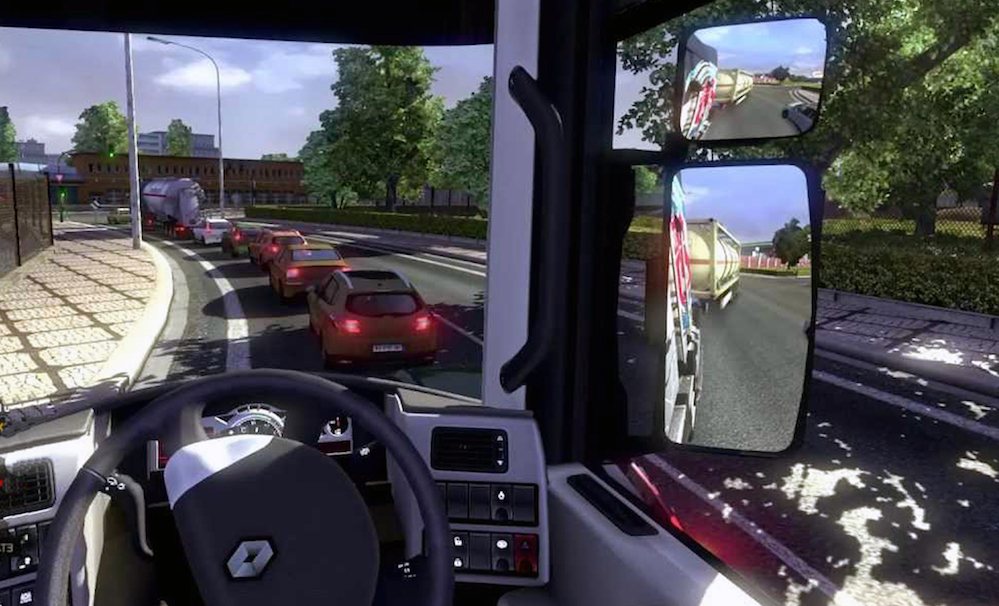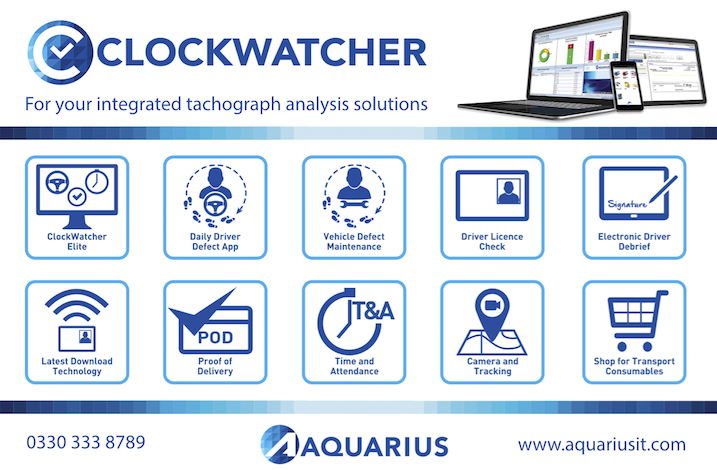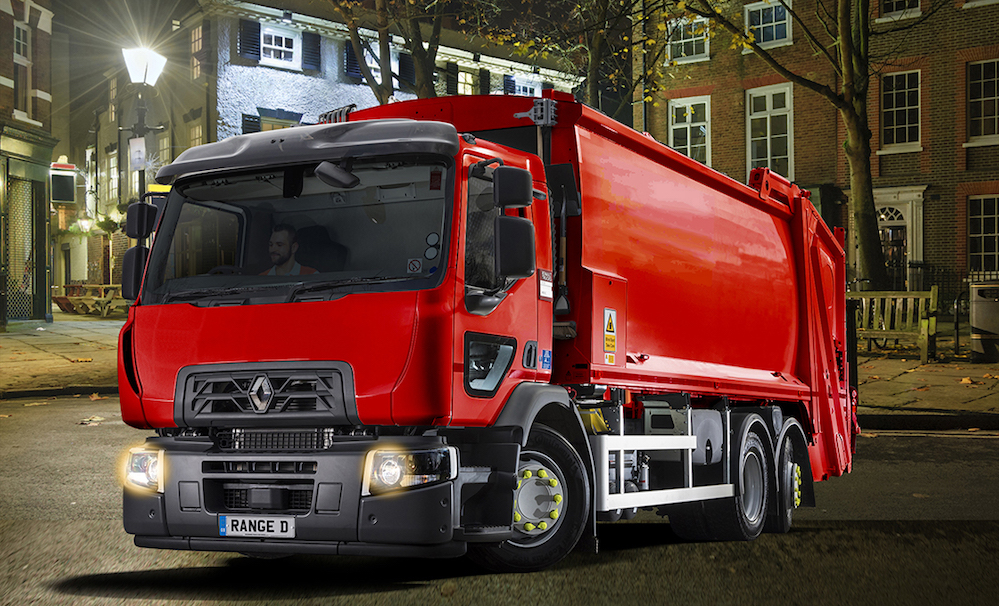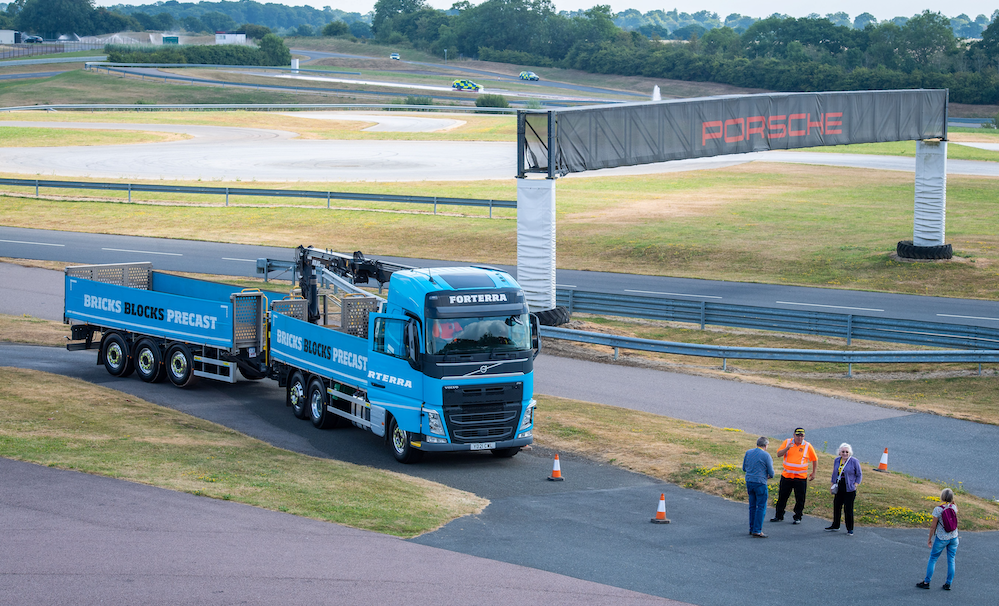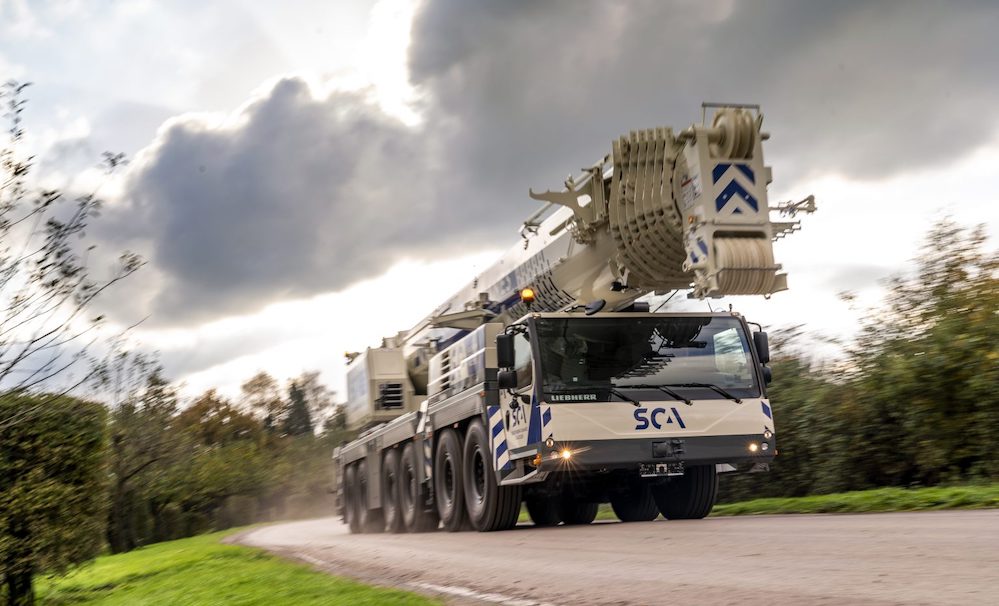- Transport for London recently released interim HGV star ratings (vision rated between 0-5) as part of their Direct Vision Standard proposal
- To be introduced for all HGV operators across the capital from 2020
- Could now make an allowance for technological solutions such as in-cab cameras and sensors around vehicles to improve safety, alongside regulations governing the visibility standards required from the cabs of HGVs
A Spokesperson for Renault Trucks UK commented:
“Renault Trucks UK welcomes the clarification provided today by Transport for London (TfL) regarding the interim Direct Vision Standard (DVS) star ratings. We share TfL and the Lord Mayor’s ambition to deliver the most effective and safe transport service possible in London. We consider that the safety of vulnerable road users is best secured by a combination of direct vision and driver aids, so particularly welcome the consideration of a ‘safety standard permit scheme’. We see this scheme as offering a pragmatic and achievable way to secure the safety of vulnerable road users, while protecting the economic movement of goods and the viability of our customers’ transport businesses.”
Nigel Butler, Commercial Director at Renault Trucks UK, added:
“Renault has worked closely with TfL throughout this consultation. While we have a number of questions regarding the interim DVS ratings communicated today, we hope that these can be resolved before the next consultation phase in the autumn. We believe the proposal for a ‘safety standard permit scheme’ is a sensible one, in particular if it builds on the learning from the existing FORS and CLOCS initiatives.”
“Delivering a successful transport system involves many stakeholders. If all of these work to the same goals we can look forward to a future where London can continue to grow and prosper, while also increasing the safety of its roads and road users. Renault Trucks has a strong track record in providing innovative solutions to transport challenges and we look forward to continuing this through our work with Transport for London and London’s vehicle operators.”
Mike Corcoran, Commercial Director, Volvo Trucks UK and Ireland commented:
“Volvo has always had safety as a core value and on initial review we are pleased that most of our range will comply with the interim vision standard evaluation until 2024. However, Volvo Trucks also believe that safe driving in urban environments is complex, where many factors come into play. Whilst direct vision is important, there are other safety devices and technologies available or being developed that will assist the driver now and in the future. We hope to see these come to the fore during the forthcoming discussions regarding the final ‘HGV safety standard permit scheme’. As a consequence, we encourage our customers to look at the results from the first stage of the consultation, and take part in the forthcoming discussions on direct vision and the ‘HGV safety standard permit scheme’.”
RHA Chief Executive, Richard Burnett, said:
“This only highlights the scale of the issue and reaffirms what we’ve been saying for some time, that the vast proportion of existing HGV’s will not meet their currently proposed standards. It is positive that we now have an opportunity to work with TfL and the industry to find an effective solution to improve road safety in a balanced way and to have recognition that the issue is complex and will require a lot more work to ensure that the best possible road safety benefits are obtained.”
“The proposal for Direct Vision Standards may be part of the road safety mix; however it is unlikely to be the panacea to the road safety challenges faced by London. TfL have not been clear about what impact the proposal will have on road safety as the focus has been on the engineering standards and visibility from the cab in isolation from other factors”
In response to the proposals for a permit scheme, Richard Burnett concluded:
“The RHA will continue to work with TfL and operators to ensure that we achieve the best possible outcome for safety but we need their reassurance that the cost of permits will be set to do no more than recover the cost of operating the permit scheme. Any charges over and above that will amount to a tax on operators and the people and businesses of London.”
Natalie Chapman, FTA’s Head of Policy for London:
“FTA has always argued that, in the long term, the really significant road safety improvements we want will be delivered through technology and we are glad that this point, which we have made repeated to the Mayor and TfL, is now being listened to. However, to ensure that the capital’s businesses are able to plan and function effectively, it is imperative we have clarity as soon as possible about what the final DVS scheme is going to require.”
